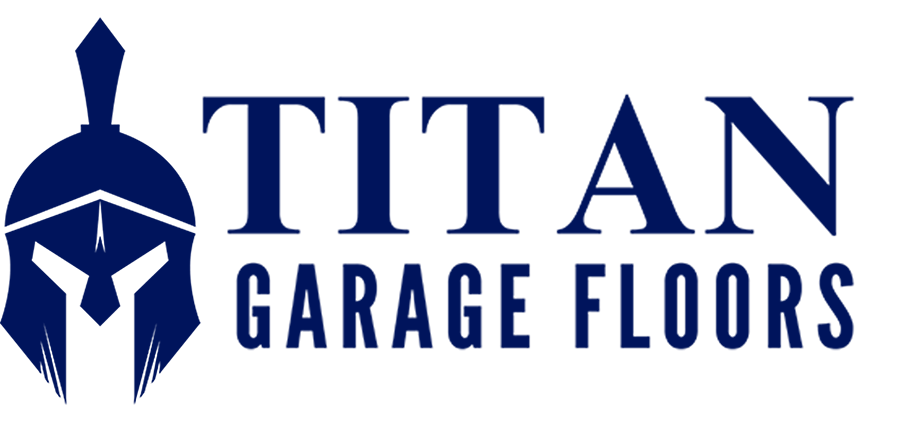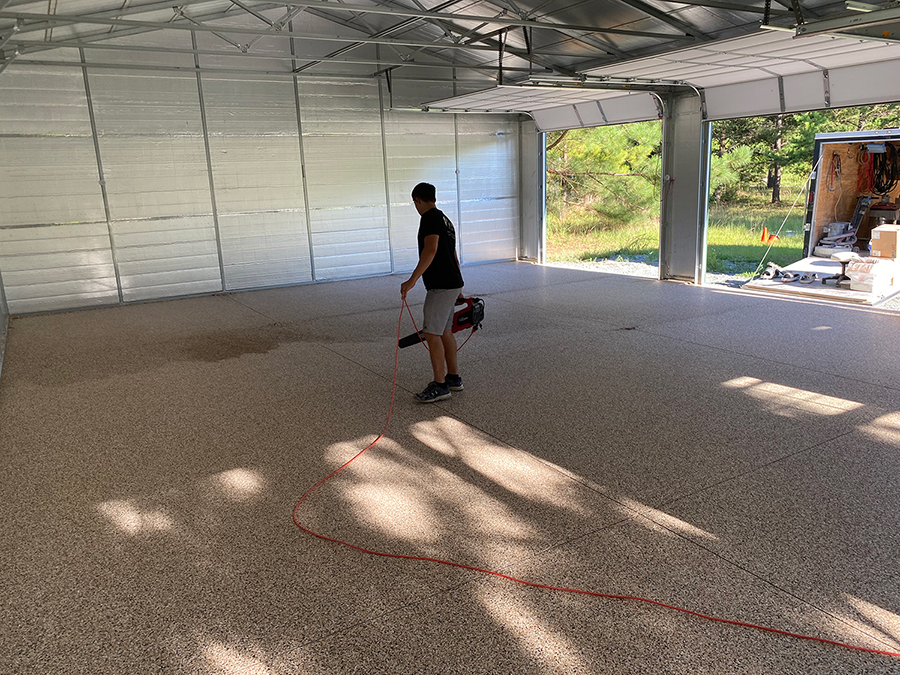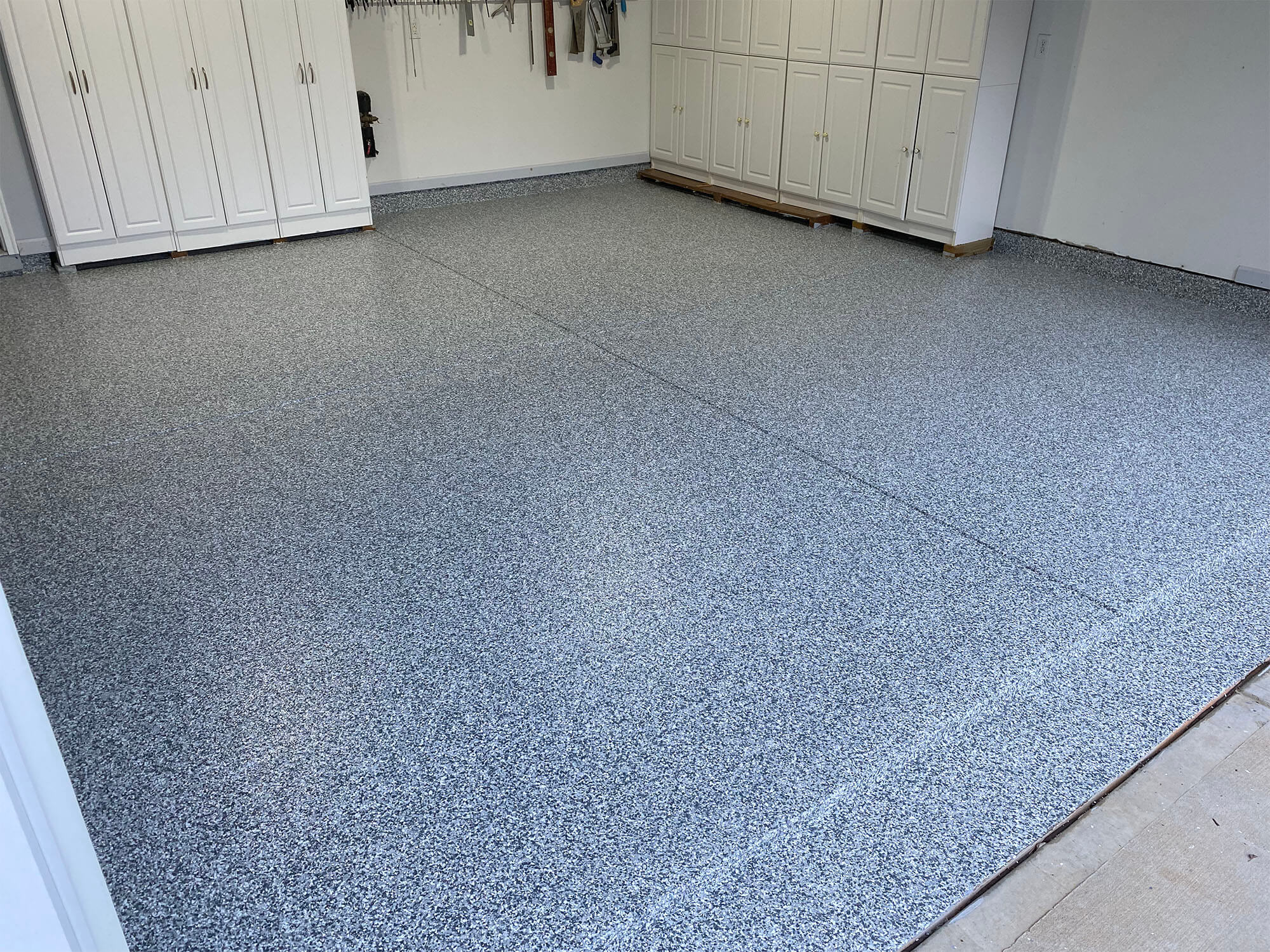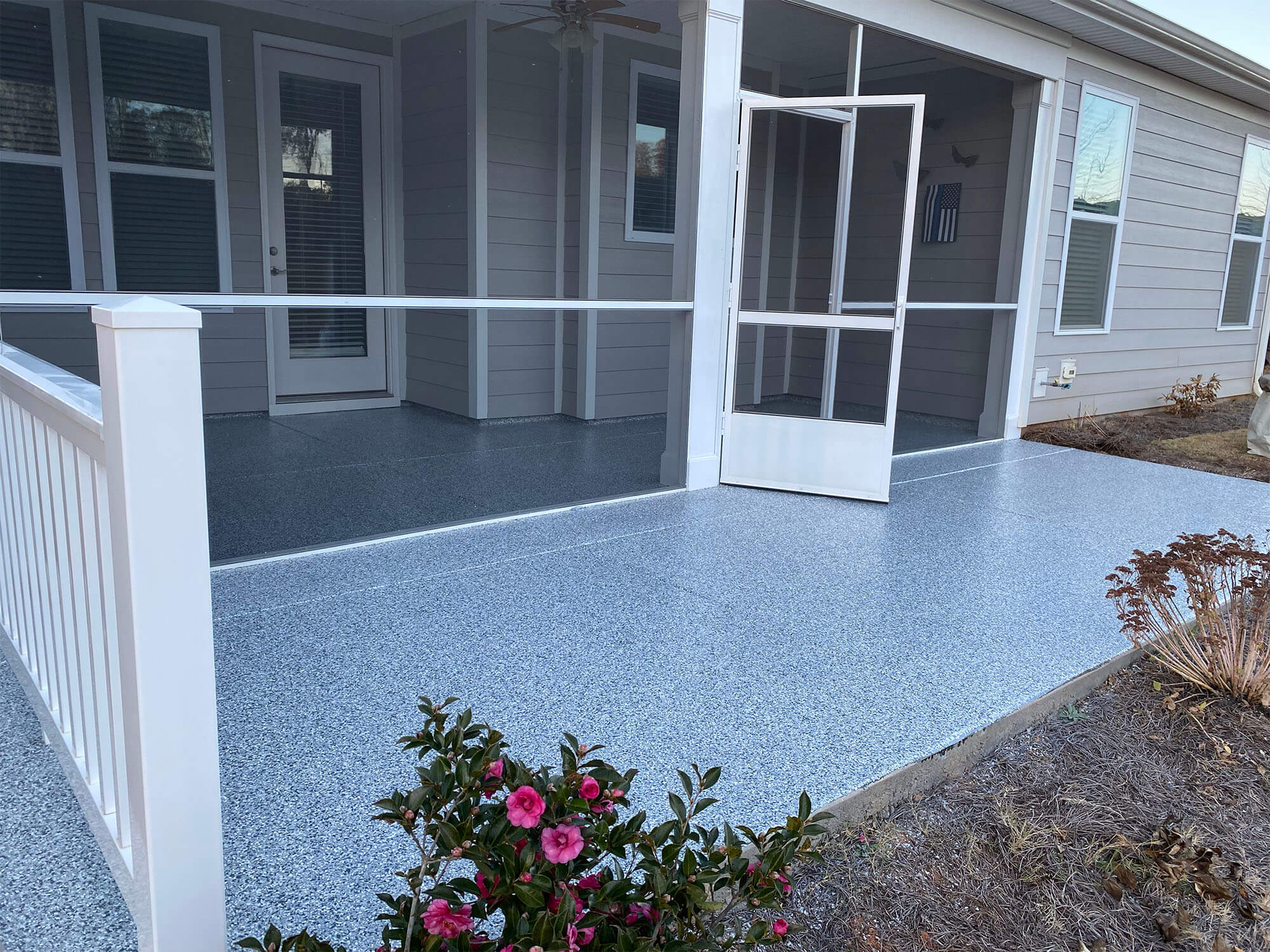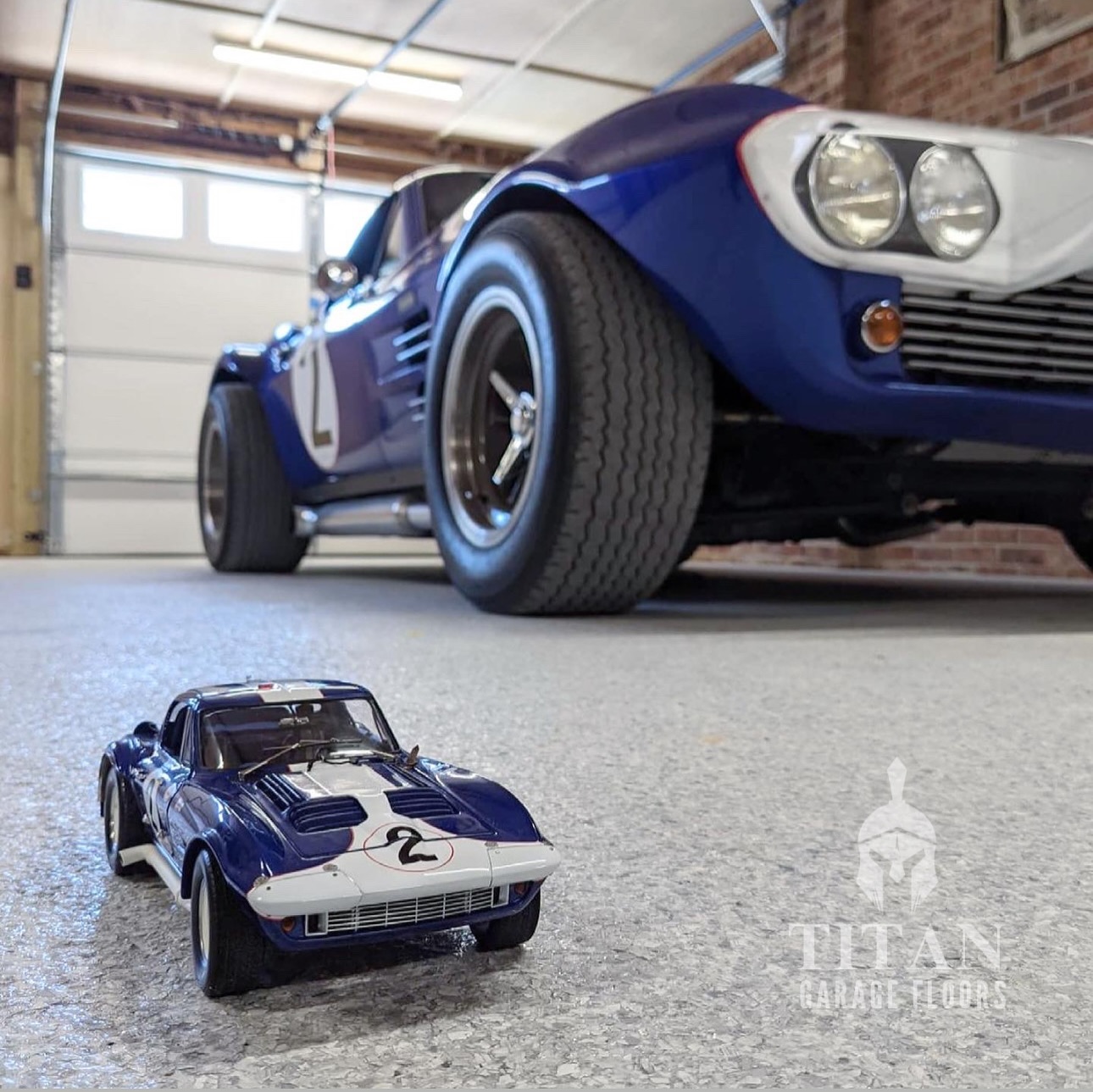Epoxy Garage Floor vs. Tile: Which Is the Better Option for Your Garage?
When it comes to upgrading your garage floor, two of the most popular options that come to mind are epoxy garage floors and tile. Both have their advantages, but they also come with distinct differences, particularly when it comes to the unique demands of a garage environment. Whether you’re looking for durability, aesthetics, or ease of maintenance, the choice between epoxy and tile can significantly impact the functionality and appearance of your garage.
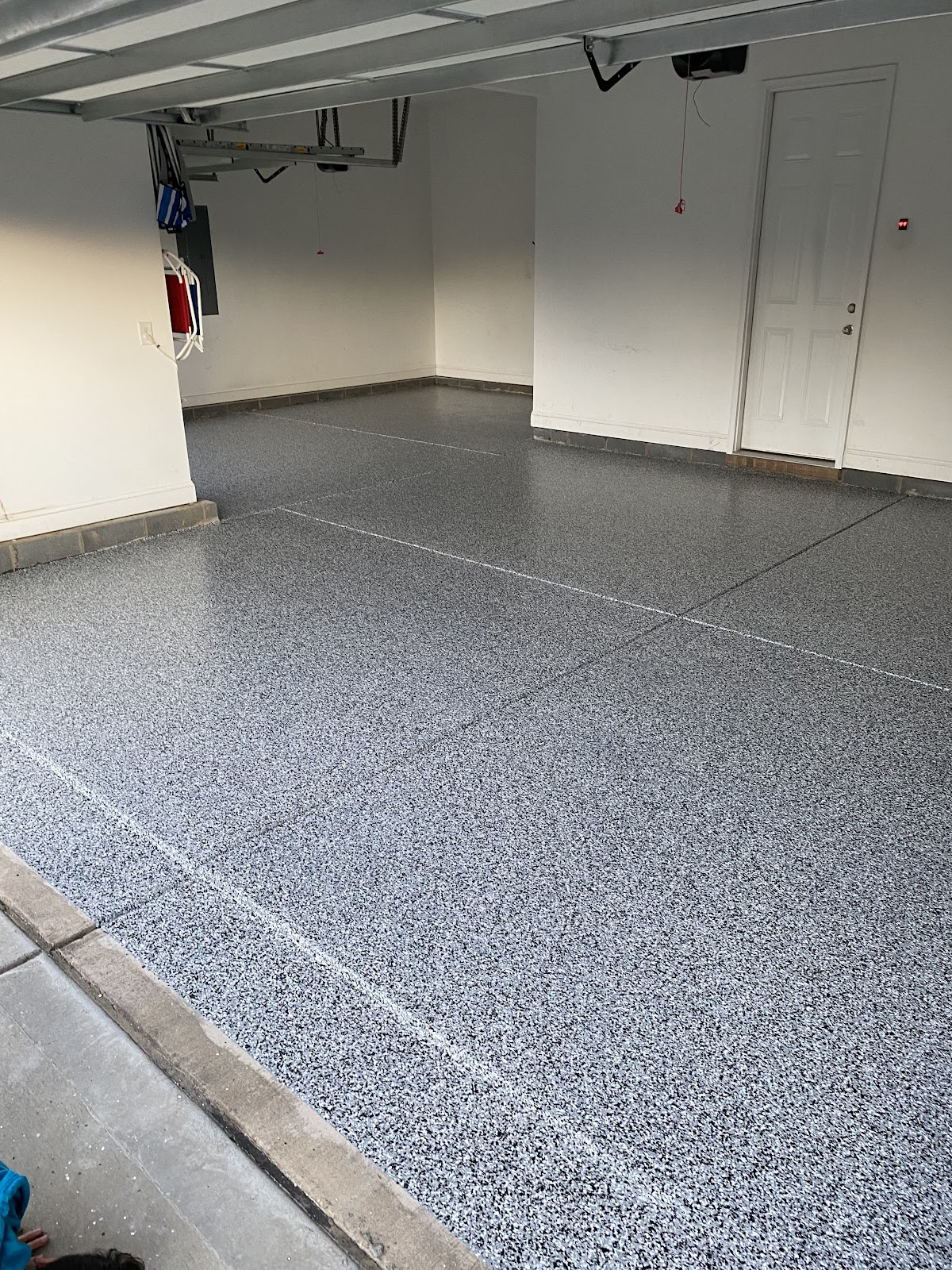
Let’s compare epoxy concrete coatings to tile flooring, highlighting the pros of epoxy and why it might be the better choice for your garage.
Why Epoxy Garage Floors are the Superior Choice for Garages
1. Durability and Impact Resistance
Epoxy coatings are renowned for their strength and durability. In a high-traffic area like a garage, durability is crucial. Garages are subject to heavy foot traffic, vehicle movement, dropped tools, and various chemicals. This is where epoxy shines.
- Epoxy: Epoxy is a seamless, thick coating that bonds directly to the concrete surface, providing a tough, long-lasting finish. It is highly resistant to abrasions, stains, and impact. This makes it ideal for protecting your garage floor from the wear and tear of daily use. Whether it’s oil stains, spilled chemicals, or even heavy equipment being dropped, an epoxy garage floor can handle it.
- Tile: While tile floors (such as ceramic or porcelain) are durable, they are more prone to cracking under impact, especially in garages where tools and heavy items are often dropped. The grout lines between tiles can also accumulate dirt, oil, and grime, which can be difficult to clean and maintain.
2. Resistance to Stains and Spills
One of the most common problems for garage floors is the accumulation of oil, grease, and other automotive fluids. A floor that stains easily or requires constant cleaning is not ideal for a garage space.
- Epoxy: One of the biggest benefits of an epoxy garage floor is its non-porous surface. Once applied, epoxy forms a sealed surface that prevents liquids, oils, and chemicals from soaking into the concrete. This makes cleaning up spills much easier and helps to maintain a pristine floor for years to come. Many epoxy systems are also resistant to UV rays, preventing discoloration over time.
- Tile: Tile floors, particularly with grout lines, are more susceptible to staining. Grout is porous, which means that oil, grease, and dirt can seep into the cracks, making cleaning much more challenging. Additionally, the grout itself may stain, requiring occasional resealing or cleaning with specialized products.
3. Ease of Maintenance
When it comes to maintenance, both options require care, but epoxy coatings are generally much easier to maintain.
- Epoxy: Epoxy-coated floors require minimal upkeep. Regular sweeping and occasional mopping with a mild cleaner is usually all it takes to keep them looking brand new. In addition, since epoxy resists stains and doesn’t absorb liquids, you won’t have to deal with deep-set stains or mold and mildew growth, as you might with tiles and grout.
- Tile: Tile floors require more ongoing maintenance. Over time, grout can become discolored or damaged, and tiles themselves can crack or chip, particularly in a high-traffic garage setting. Tiles often require periodic regrouting or resealing to prevent water or oil from seeping into the grout lines. Regular cleaning with special grout cleaners is also necessary to keep the floor looking its best.
4. Cost-Effectiveness
Cost is always a major consideration when upgrading your garage floor. Both epoxy and tile can vary widely in price depending on the quality of materials and installation, but epoxy generally offers better value for a garage floor.
- Epoxy: Epoxy flooring is relatively affordable compared to tile, especially when considering the long-term benefits. Installation is quick, and the cost of materials is usually lower than high-end tile options. Moreover, because epoxy requires little maintenance, you won’t have to spend as much on repairs or cleaning over time.
- Tile: Tile flooring can be more expensive to install, especially when you factor in the cost of the tiles themselves, labor for installation, and the cost of grout and sealing materials. While tile can be durable, it’s also more prone to damage and can lead to costly repairs if cracks appear.
5. Aesthetic Appeal
Both epoxy and tile offer aesthetic options, but they cater to different styles and preferences. The decision largely depends on the look you're aiming for.
- Epoxy: With epoxy, you can create a seamless, glossy surface that is available in a wide range of colors and finishes. You can even add decorative flakes, metallic finishes, or custom designs to personalize your garage floor. Epoxy creates a clean, polished look that’s perfect for a high-end garage aesthetic, or you can opt for more subtle finishes, depending on your preference.
- Tile: Tile floors can also provide a sophisticated look, especially with high-end options like porcelain or ceramic tiles. However, achieving a uniform look with tiles can be more difficult due to grout lines, which may break up the smooth flow of the floor. Plus, depending on the type of tile, grout lines can be an ongoing maintenance challenge.
6. Installation Time
Garage floor installation can be a time-consuming process, but epoxy generally offers a much faster turnaround.
- Epoxy: Installing an epoxy garage floor typically takes less time compared to laying tile. A professional epoxy floor installation can often be completed in one to two days, depending on the size of the garage. Plus, there is no need for curing time once the epoxy is applied—although the floor will need a few days to fully harden.
- Tile: Tile installation requires more time, especially when considering the need for precise cutting and fitting, as well as the time needed for grout to set and dry. Tile floors also require longer drying times between installation steps, which can delay the overall process.
7. Flexibility and Movement
In garages, concrete floors can experience some movement due to temperature changes, settling, or moisture. It’s important to choose a floor material that can adapt to this movement without cracking or shifting.
- Epoxy: Epoxy is a rigid, durable material but can be prone to cracking in areas with excessive moisture or extreme temperature fluctuations. However, when applied properly, it can handle normal garage shifts and is resistant to most minor movements.
- Tile: Tile floors are generally more prone to cracking in response to concrete shifts or impacts. The grout lines between tiles can also loosen over time, making tiles more vulnerable to damage. The flexibility of epoxy offers better protection for areas prone to temperature or moisture changes.
Epoxy Garage Floors vs. Tile: The Verdict
When it comes to garage flooring, epoxy concrete coatings offer a superior option in terms of durability, stain resistance, ease of maintenance, and overall cost-effectiveness. Epoxy is specifically designed to handle the heavy traffic, chemical exposure, and temperature fluctuations that are common in a garage setting. Plus, it provides a smooth, customizable finish that is easy to clean and maintain.
While tile floors can add elegance and sophistication, they’re more susceptible to damage, require more maintenance, and may not be as durable under the heavy use typical in a garage environment. Epoxy flooring is designed to meet the demands of a garage and offers long-lasting protection, making it the clear winner for most garage applications.
Get Your Epoxy Garage Floor Installed by the Pros
Ready to upgrade your garage with a durable, attractive epoxy floor? At Titan Garage Floors Inc., we specialize in high-quality epoxy, polyaspartic, and PolyFlex coatings that can transform your garage into a polished, functional space.
